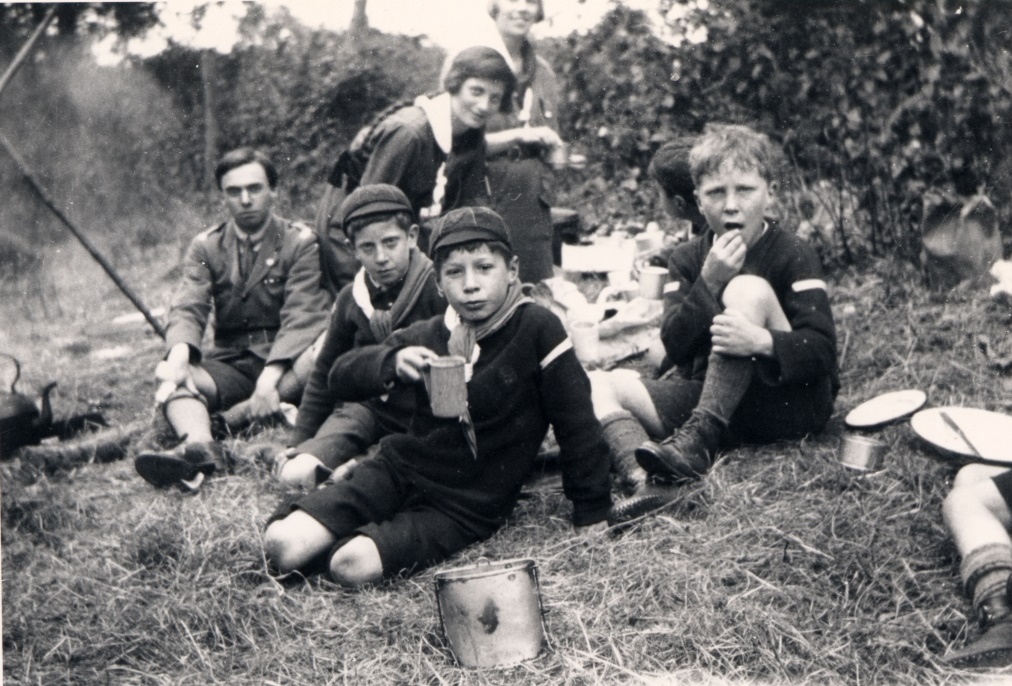Here at the 91st Bristol Scout Group we have been helping boys and girls in the Bishopston/Horfield area of Bristol to enjoy scouting for over 100 years. We can promise you and your child a warm welcome, a safe place to have fun and adventure, and lots of new friends.
We run three sections, grouped by age. Each section has its own weekly meeting and is led by a leader and one or more assistant leaders, as well as section assistants and/or occasional helpers. All adults working in scouting are subject to a DBS check, and uniformed leaders are also required to follow a training programme defined by the Scout Association.

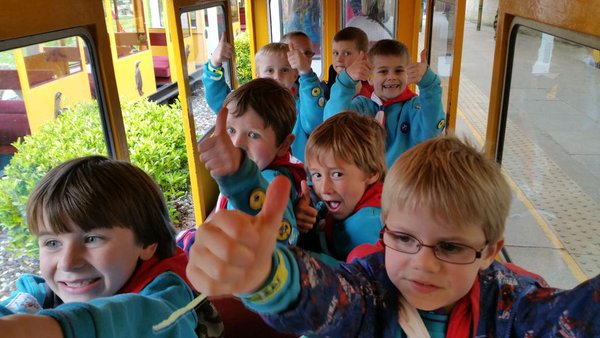
Beavers is for boys and girls aged 6 to 8 years old. Our Beavers meet every Wednesday from 6:00 pm to 7:00 pm.

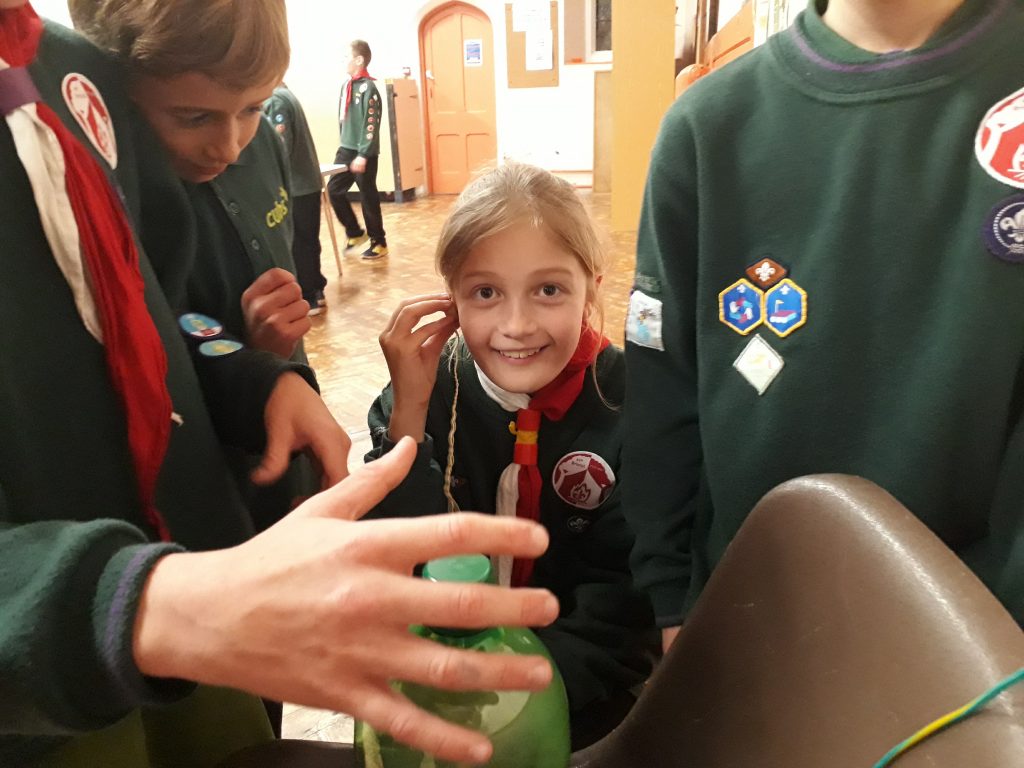
Cubs is for boys and girls aged 8 to 10½ years old. Our Cubs meet every Wednesday from 7:00 pm to 8:30 pm.

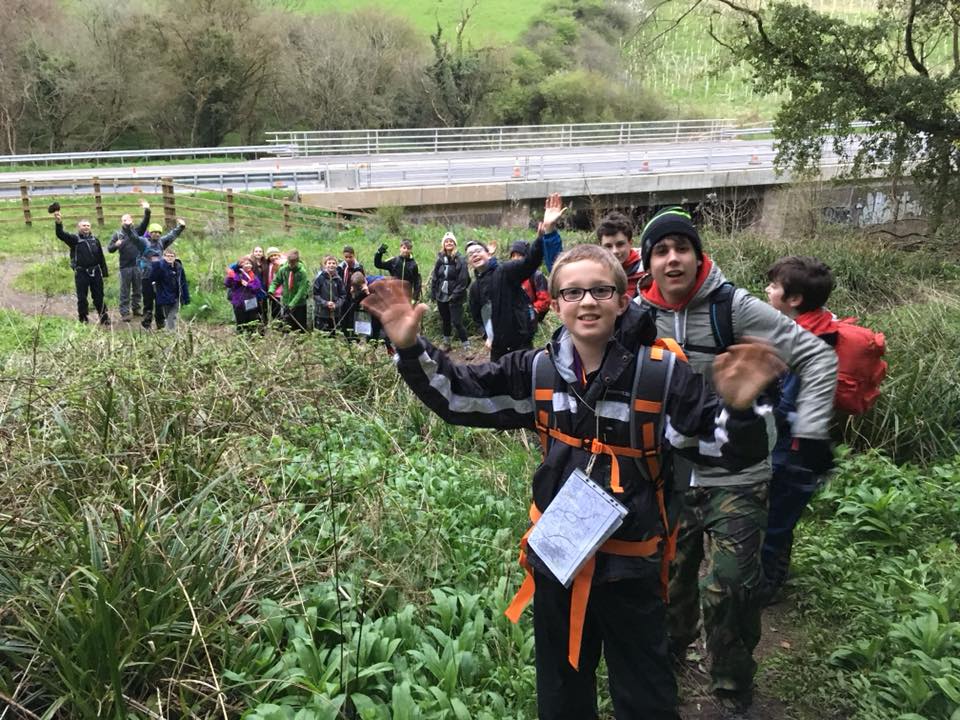
Scouts is for boys and girls aged 10½ to 14 years old. Our Scouts meet every Tuesday from 7:00 pm to 9:00 pm.
Where to find us!
Our address is:
Civil Service Sports Club
Filton Avenue
Bristol
BS7 0AT
History

It all started in early 1917 at Horfield Baptist Church when the subject of a leakage report was raised in a church meeting. Boys were leaving the Sunday School to join a uniformed youth organisation at another church and it was felt that Horfield Baptist should have something of its own. Having no previous experience, the late Reverend Keith Preston (left) assisted by Oliver Anstey, founded the 91st Bristol Scout Troop and together with a copy of Baden-Powell’s ‘Scouting for Boys’ and plenty of faith they set out the foundations of the group. The first meeting of the 91st Bristol Scout Troop took place on 14th December 1917.
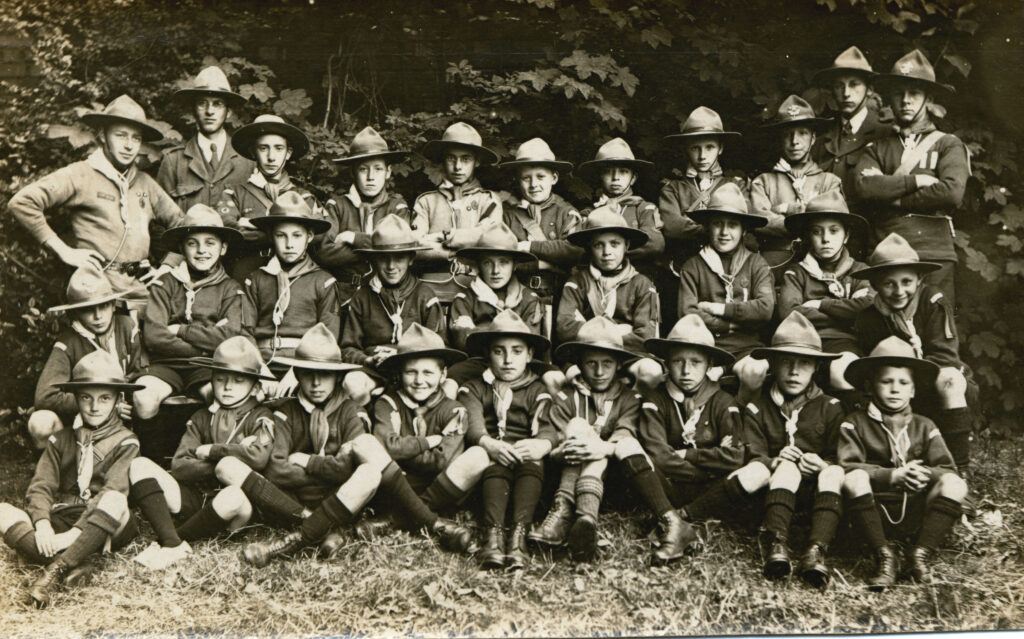
Three years later in April 1920 the ‘Wolf Cub’ Pack was started but only lasted for 18 months. It was restarted on January 3rd 1923 by Miss Elsie Parson who remained its leader for 27 years and was awarded the Medal of Merit for service for Scouting.

The 91st Bristol even once had its own marching band which by all accounts was very good! It was started in 1956 and ran until November 1981, when it became unsustainable due to lack of members and leaders.
The Scout Association introduced Beaver Scouts in 1986 to meet the demand from pre-Cub age children, and our Beaver colony was started on 2nd July 1987, led by Christopher Kerslake and Anita Stradling.
The 91st would like to thank Uma Dodd for providing the following information.
The Impact of World War One.
When the 91st Horfield Baptist Scout group was founded in December 1917, with Reverend Keith Preston as the scoutmaster and Oliver Anstey as the assistant scoutmaster, the shadow of the First World War hung heavy over the world with no end in sight – a fact that is often forgotten with the luxury of hindsight afforded to us now. In March of the following year the German Spring Offensive, or Kaiserschlacht (“Kaiser’s Battle”), would begin and for a short time the real possibility of Allied defeat would send panic through Britain, a panic which would only be quelled in late April, when the danger of a German breakthrough had passed.
A little closer to home, too, tragedy stalked the streets. On 26th February 1918 the HMHS Glenart Castle (His Majesty’s Hospital Ship) was sunk by a German U-Boat at the mouth of the Bristol Channel leaving 162 people dead, 99 of whom were hospital patients [1]. The war affected everyone’s lives, from the eldest to the youngest, with most people knowing someone who was involved in the war, whether that were through military service, wartime production, or another area altogether. In such a turbulent and uncertain time it is likely that children welcomed the escape and sense of community that the 91st could provide them, evidenced by the fact that by the end of 1918 the troop already had many members. One such member was George Woolrich, who joined the Troop in April 1918 and went on to be involved in the group for half a century, eventually retiring from his position as Group Scout Leader in 1968.
[1] ‘Hospital Ship Sunk by a U-Boat’ (PDF), The New York Times, 28th February 1918, accessed 01/10/18.
Such was its impact that the First World War was still affecting people’s everyday lives even in 1924, a decade after its commencement, in a far more direct way than it does ours today as an event whose end’s centenary has just recently been marked. This article from Bristol Scouting (below), from October 1924, asks scouts for their help at an event for children who had lost parents in the Great War, demonstrating how deep and lasting the scars left by this catastrophic event were, and how far-reaching its impact was. The residual tragedy of the war had become a fact of life for members of the scout troop.

This second extract from the article is also interesting as reveals the importance of November 11th, which had already begun to be remembered as Armistice Day but six years after the end of the war. The real day of the armistice, on 11th November 1918, had been celebrated very differently to the way that it is marked today, with parties and celebration in the streets. However in 1924 it seems that, even after such a short period of time, the day had started to morph into something more familiar to us today: a solemn memorial of the 17 million soldiers and civilians estimated to have been killed during the First World War.

1920s
The period between start of 1920 and the summer of 1921 saw a global recession take hold, a by-product of the First World War – which had concluded just fourteen months prior – and the large influx of returning war veterans that it brought. Whilst the economic downturn was brief, and was most severe in the United States, such conditions may have been less than encouraging to the founders of the 91st. In a 1924 letter published in Bristol Scouting the 91st reported that it had only twelve members and that, whilst it was ‘running fairly well’ it had ‘had a hard struggle to keep going’. The editor said of the group, responding to this:
We have pleasant recollections of the 91st and their familiar red and white scarves during war-time. We are pleased with the Scouty spirit of their note to us, and are confident that, like a cork floating in a pond, they will bob up again, however much they are pressed under .
News1924-03.
In spite of these difficulties time and again Bristol Scouting noted the force for good in the local community that the 91st was, thanking its Cubs in their first issue of 1924 for the Christmas party they threw for fifty poor children at St. Matthias-on-the-Weir who ‘were lucky to have Cubs as friends’. (News1924-02).
By the summer of that year fundraising efforts like a jumble sale and, later, the work of the Cubs, who collected old newspapers and sold them, seems to have enabled the 91st to have regained its financial footing enough that it was able to hold multiple weekend camps over the course of the rest of the year. However, in 1925 the group is recorded as having eleven scouts and fourteen cubs, meaning that ‘small numbers [compelled them] to go slowly’.
The remainder of the decade saw the 91st grow at a slow and steady rate, organising further camps at Blagdon and Capton-in-Gordano over this time, and fundraising events such as a concert in 1928.
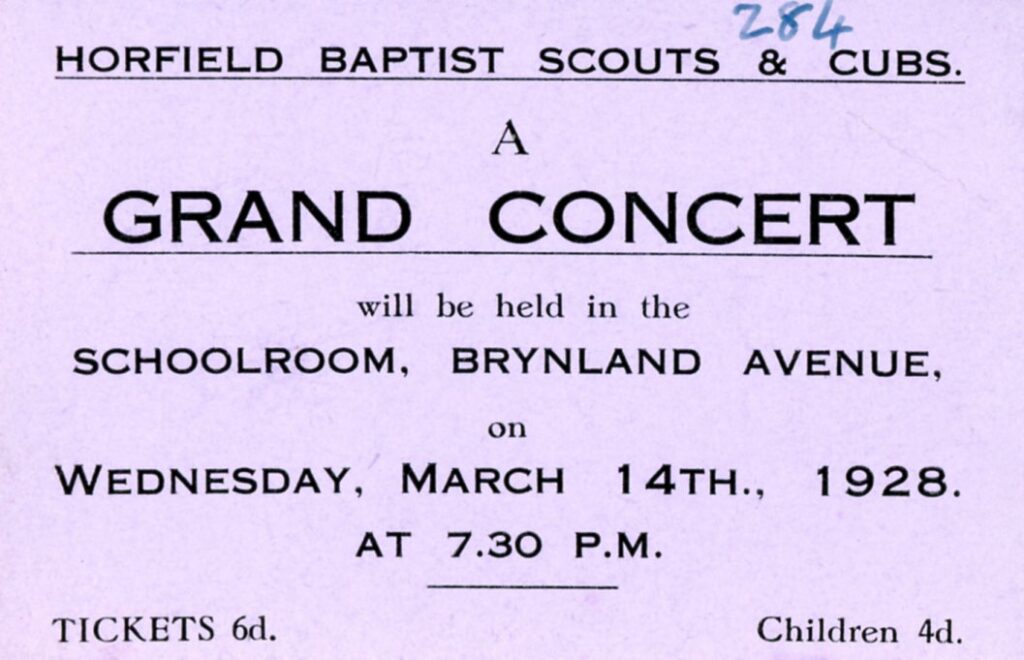
Its members also continued to display exemplary community spirit by, among other things, doing their bit for the county by taking part in the Camp Fires at Colston Hall in November 1925. Additionally scouts assisted in righting a three-wheeler turned on its side after a motor accident, whilst at Blagdon for a summer camp in 1925.
Furthermore the 91st seems to have modeled some of the progressive attitudes of the 1920s – progressive in comparison to the decades prior to it, at least – by being one of few Bristol Scout Groups to have two female leaders, Cub Master Miss E. L. Parson and Assistant Cub Master Miss R. Fey, both of whom attended the Cub camp held in 1929.
